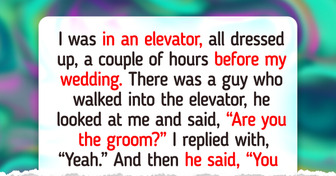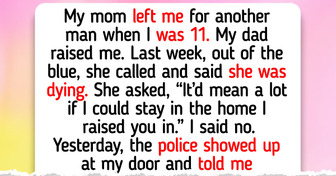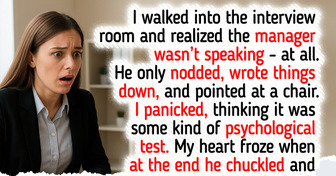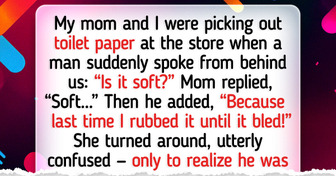“WOW!” Heidi Klum’s Son Wows in First Steps Into Modeling World

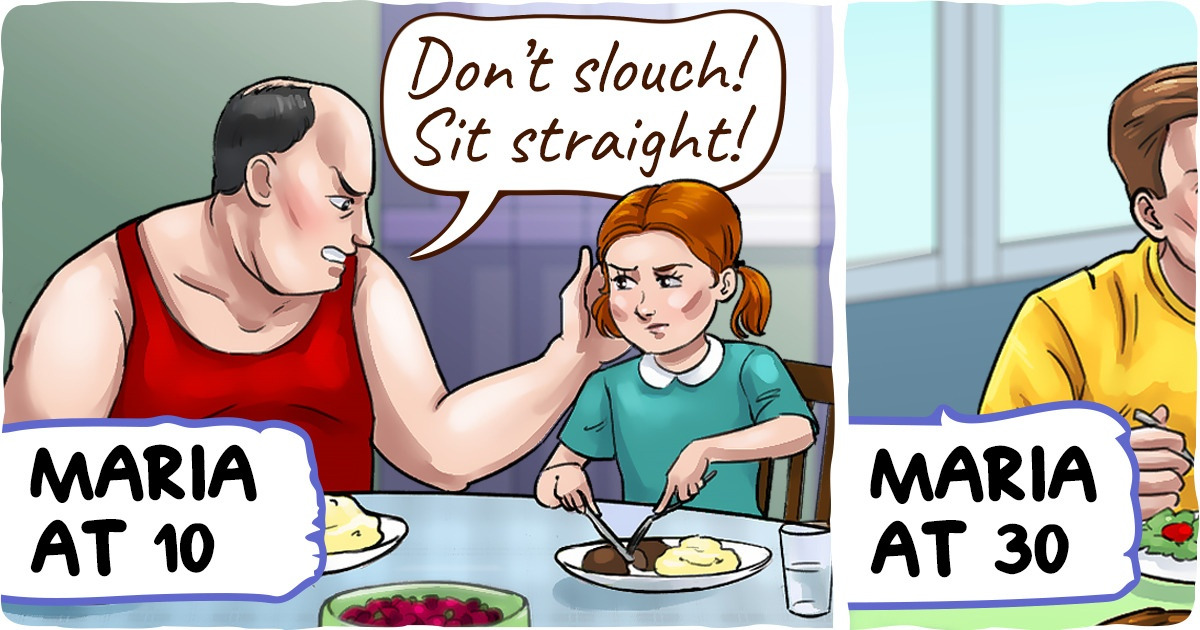
Parents often nag their children, saying things like: be quiet, behave, sit up straight, hurry up, etc. And they believe that this is the only way to teach their offspring to behave in public. Unfortunately, most of these remarks can do a lot of harm to your kids’ psyche. We decided to study the work of some modern psychologists and put together a list of phrases that should be removed from parents’ vocabulary for good.
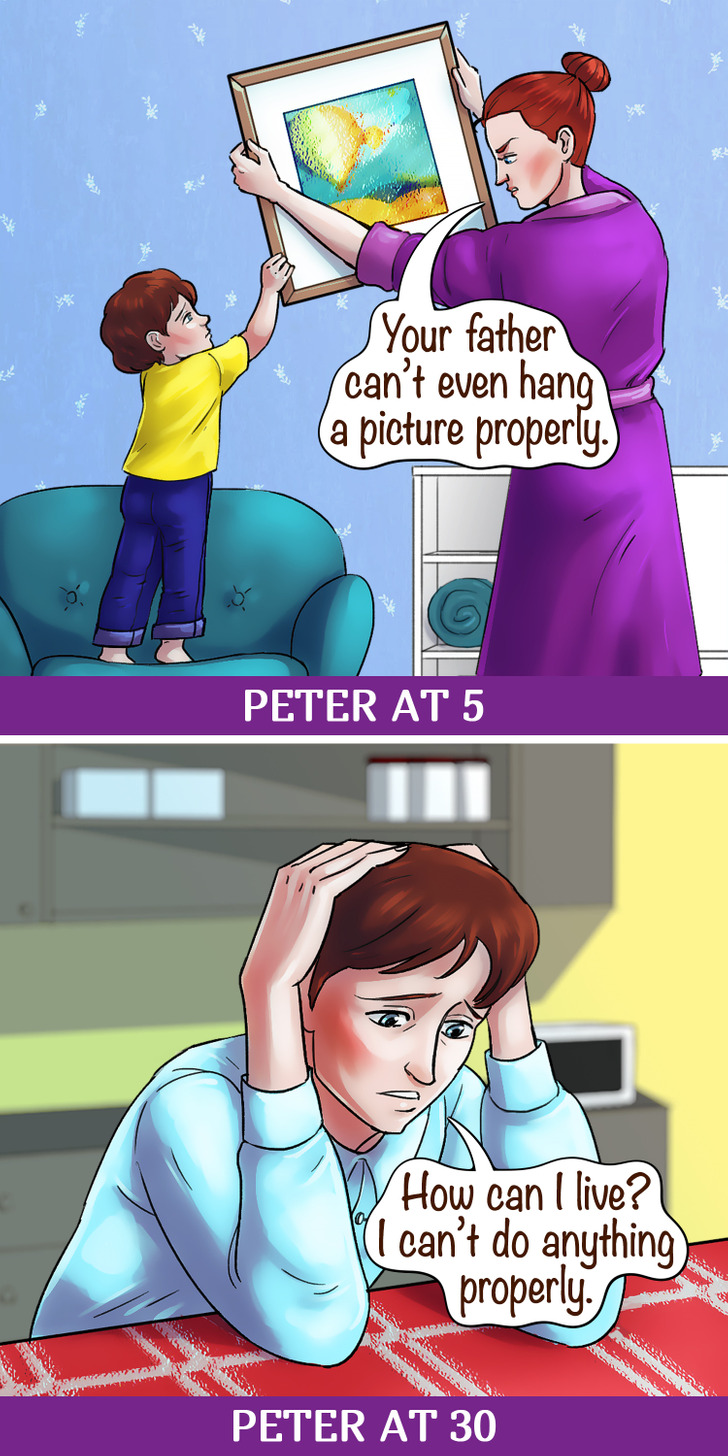
Parents may not be happy with each other, and under the influence of emotions, they may start criticizing one another right in front of their children. But these words can leave deep traces on a kid’s heart.
Every time one of the parents ridicules or criticizes the other, the child has to make an unpleasant choice: to agree with them, to protect the other parent, or to keep silent. And if a child starts believing that their father or mother is incapable of anything, they may lose faith in themselves and their direction in life.
Some parents believe that when they compare their child with themselves, they motivate them to become better. In reality, competition doesn’t encourage a child to be more active and resourceful. On the contrary, the child could feel depressed and disappointed. When talking to your kid, it’s best to focus on your similarities, not your differences.
Every parent has probably asked this question at least once. Unfortunately, it’s almost useless. In general, this question is actually nagging about how much you need to nag. And children can’t quite understand it, so they just prefer to ignore it. Instead, it’s best to say, “I’ve told you this before, but could you please...”
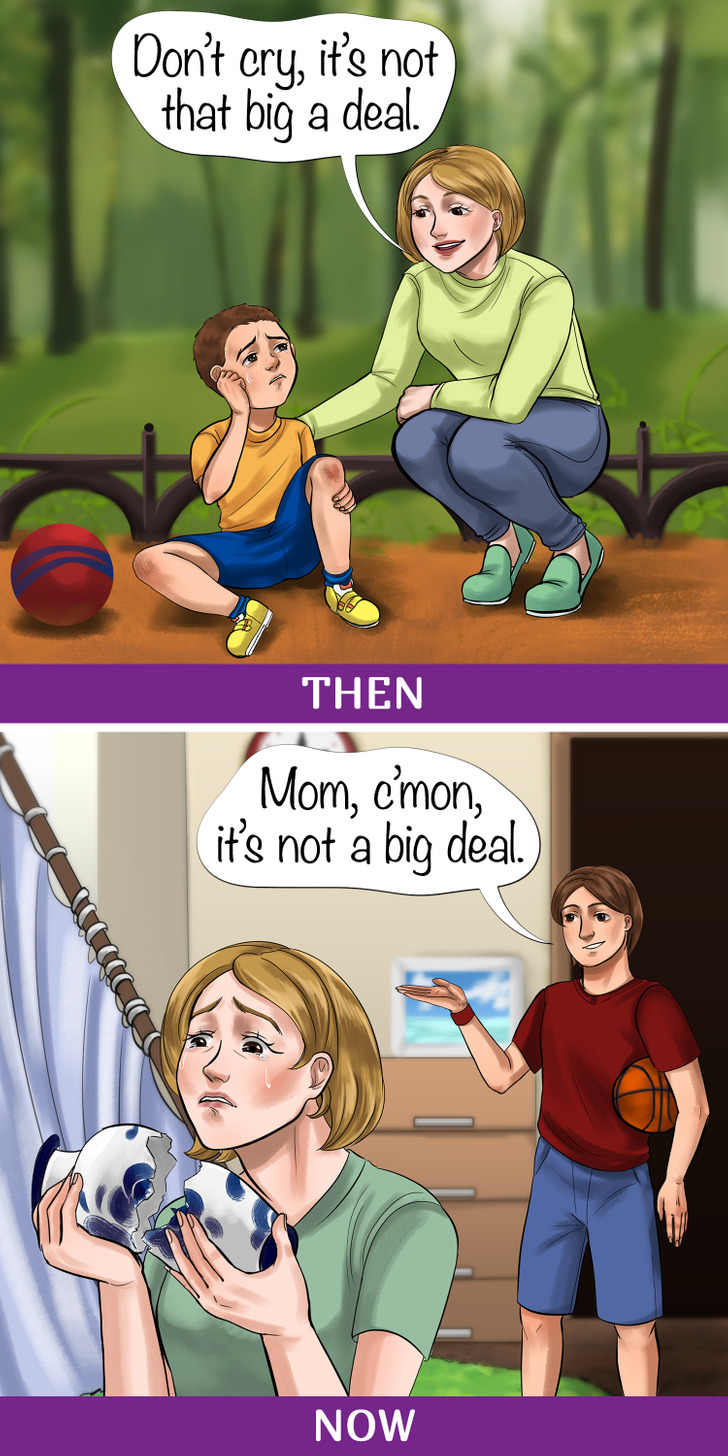
It may not be a big deal to you, but it is to your child, as they are obviously upset and crying. Telling them that their reaction is too strong only makes them feel ashamed of their emotions. Not only are they then upset about the original problem, but they’re also ashamed or embarrassed about how upset they are on top of that.
Yes, they did. Children also experience negative emotions and can do something bad intentionally. This type of behavior can even bring them joy and satisfaction. So, it’s not the best idea to provide them with an excuse for their wrongdoing. It’s much more productive to teach your child how to regulate their reactions and cope with strong emotions.
Children often look to adults to validate their feelings and experiences, so when parents dismiss them, it makes them feel like they don’t matter. If you don’t understand why your child is doing something, ask them. Also, try to remember an experience when you were in a similar situation.
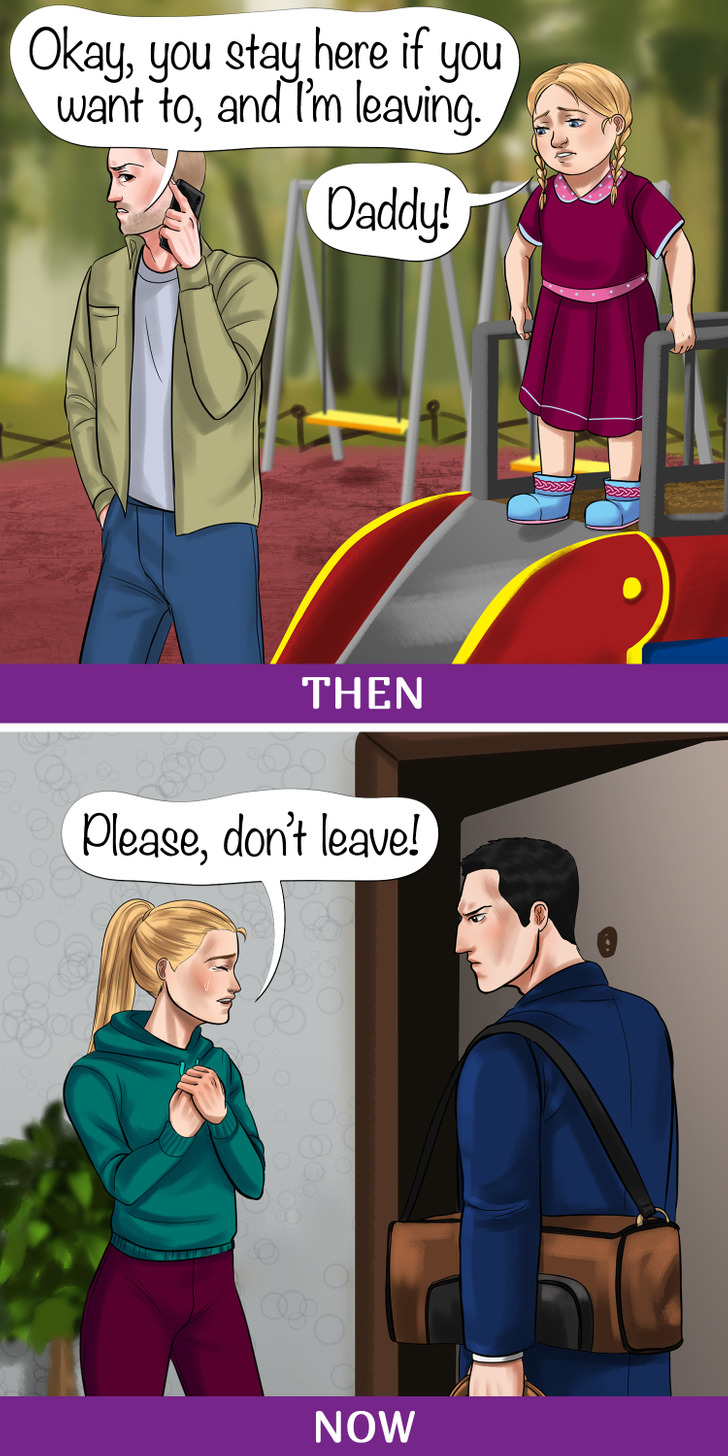
Every parent has probably felt frustrated or angry when they needed to leave a playground or park, but their child simply refused to stop playing. However, if you threaten to leave them alone there, you form a sense of being defenseless in your child. They suddenly realize that their parents can leave them all alone in this scary world. When growing up, these children tend to make more mistakes in stressful situations.
Little children don’t quite understand the concept of time. This is why these words don’t usually get anything done faster, as they just make children feel more stressed. It’s better to be more specific about what needs to happen next. This way, you’ll be able to avoid unnecessary stress for yourself and your child.
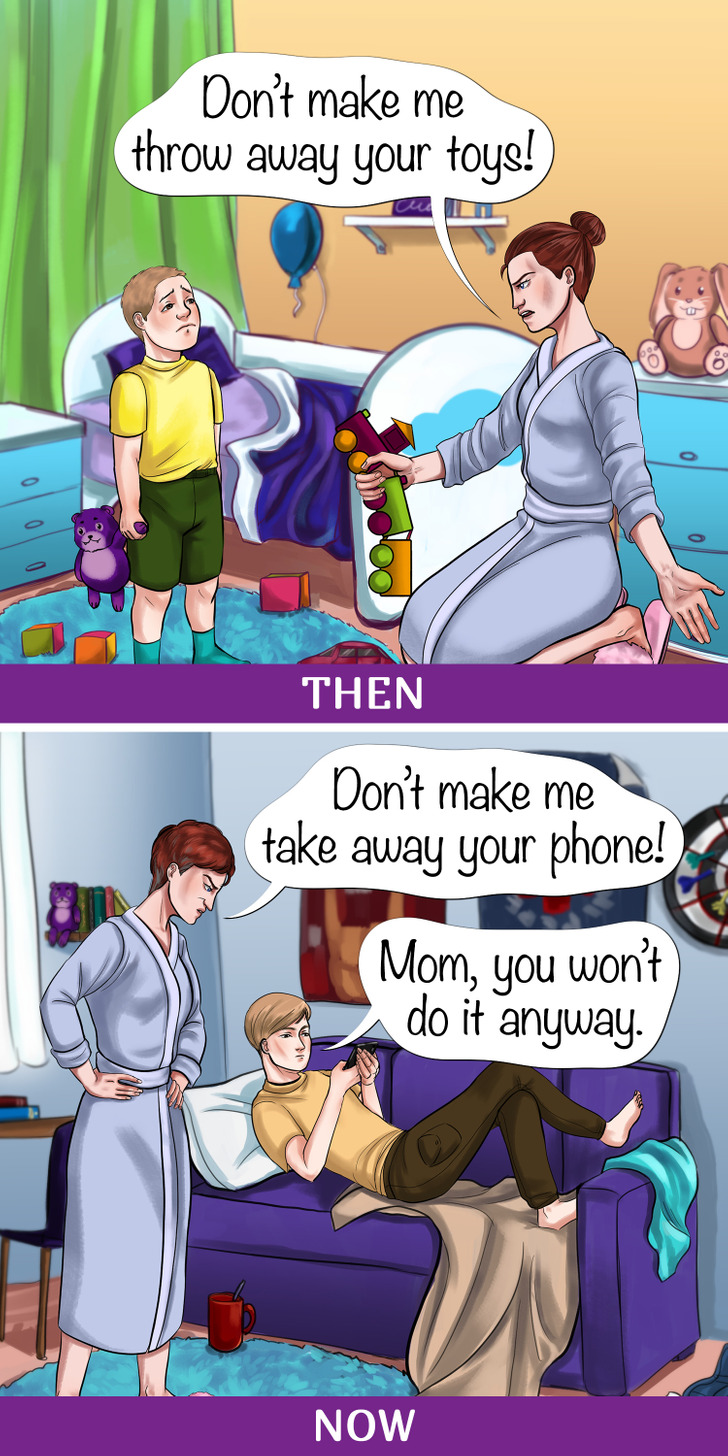
Using threats is often a default discipline technique. So, if you threaten to do something, be prepared to fulfill your threat. Otherwise, this trick will stop working as soon as your child realizes that your threats won’t be followed by real actions.
There’s nothing wrong with this phrase if your tone is compassionate and you are genuinely wondering if they want to share their feelings with you. However, this is not always the case. If a parent exclaims while irritated, “What’s wrong with you?” the child tends to perceive these words as if there is something really wrong with the fact of their existence. They begin to ask themselves whether it is true. At the same time, they are unable to answer this question. This devastation can take a lifetime to get over, even with therapy.
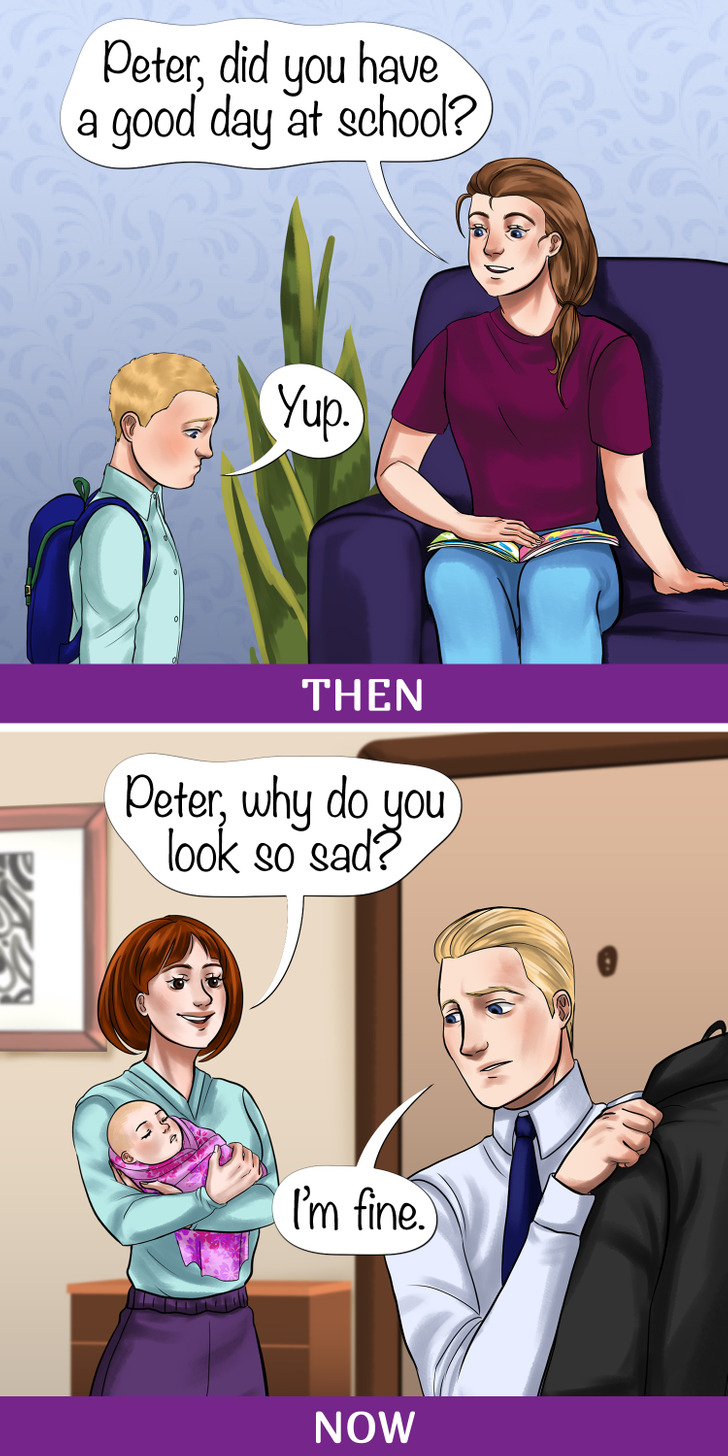
This question implies that everything went well. But children can have problems at school and they probably want to share them with you. And if they don’t feel that they meet your expectations, they may get upset and clam up.
It’s best to not provide your children with too much financial information. Even if parents struggle financially, there is no point in sharing this with your child. They can’t change anything about it, and they’ll just feel anxious and scared.
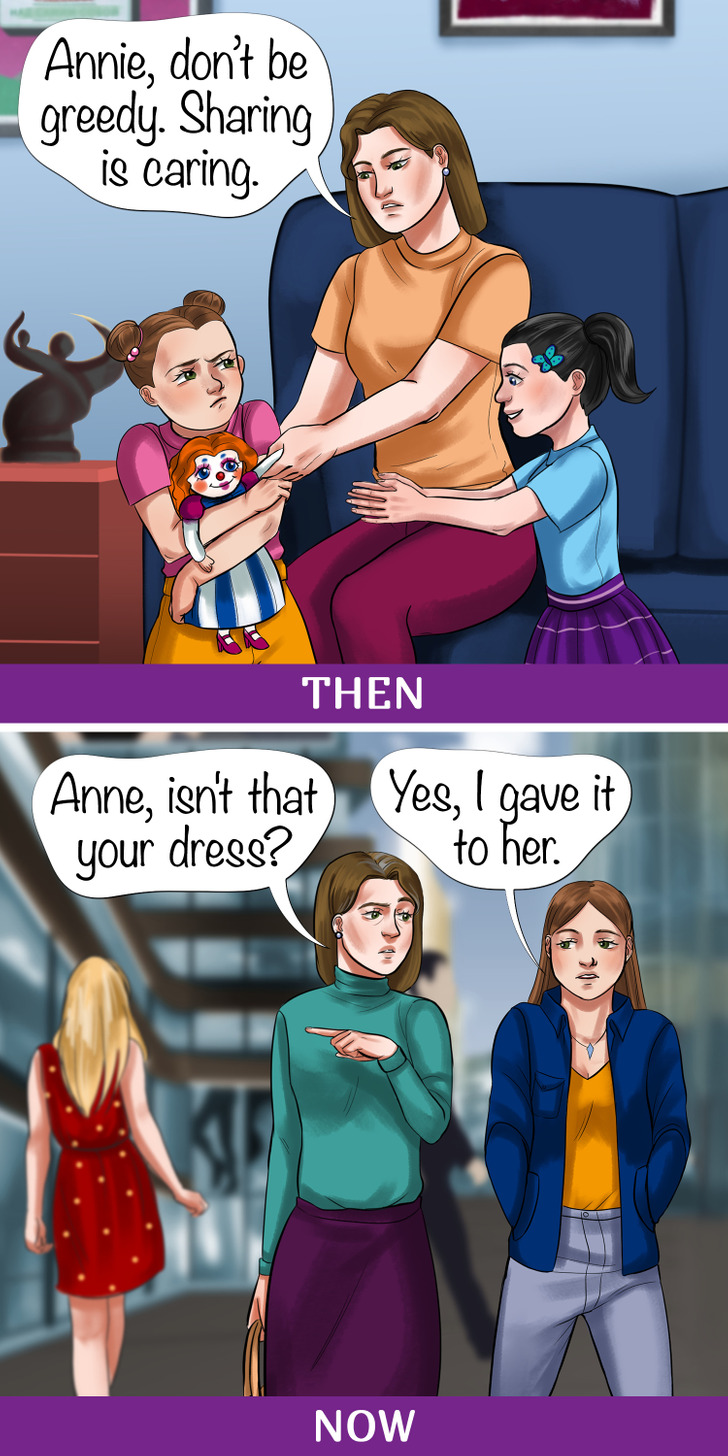
Parents often try to instill generosity in their children from an early age. But little kids don’t quite understand what empathy is about and why they should share their toys with other children. By forcing their child to share, parents often provide them with the wrong message, that they should give away anything that is important to them as soon as they are asked for it.
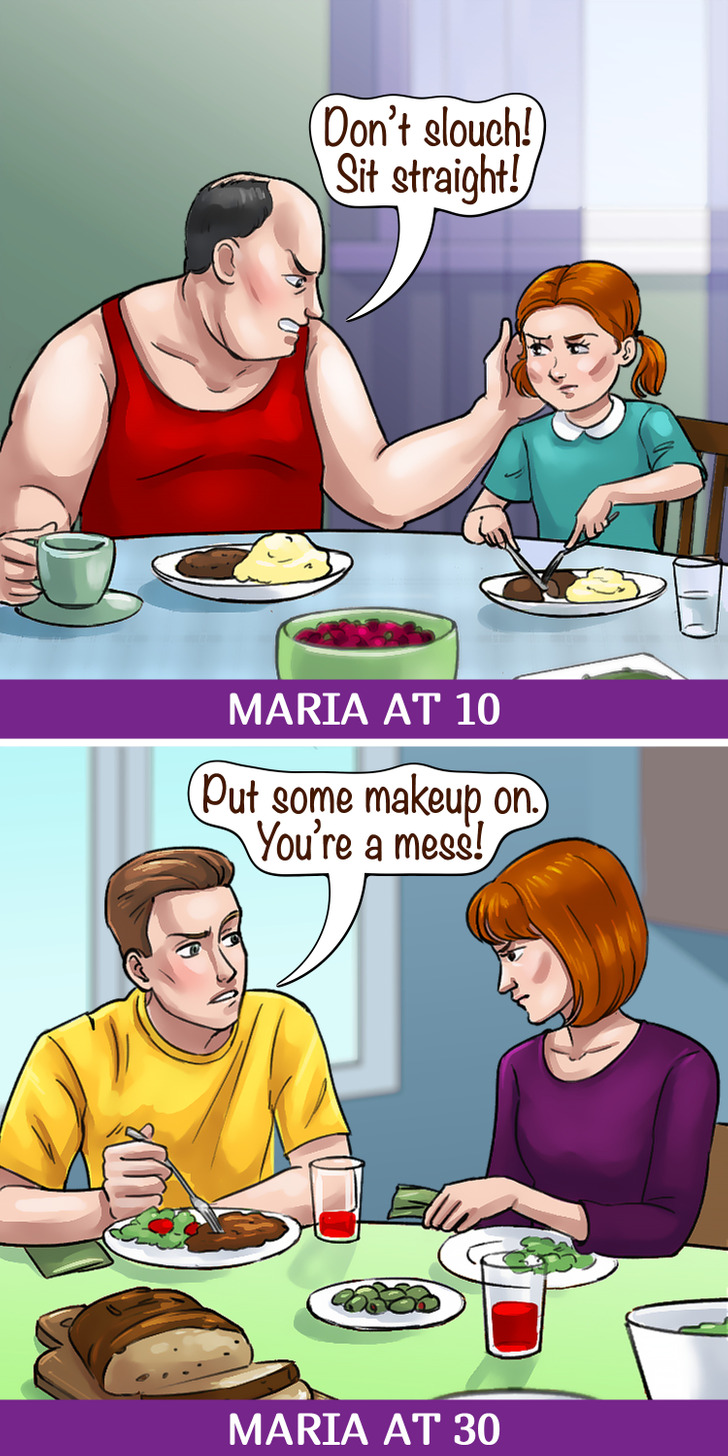
These remarks are totally useless because there is hardly a person in this world who’s stopped slouching thanks to their parents’ nagging. By wishing their child the best, adults often cross the line between mentoring and controlling behavior. And this often happens because parents want to control their offspring.
A child who is always nagged by their parents can lose their confidence and get used to criticism, taking it for love and care. And it will be really hard for them to build a healthy relationship with their partner.
There are no perfect parents, but there are loving parents who support their children and admit their own mistakes. Have you ever used any of these phrases? Or maybe you heard them from your own parents? How did they make you feel?

